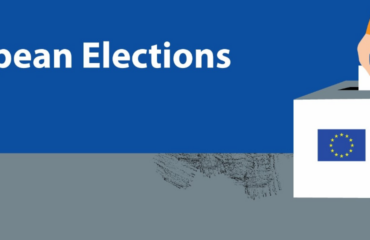NI Environmental Governance according to the OEP

For centuries, scholars interested in Gnostic thought could only get their hands on critiques (indeed, very harsh critiques) of Gnosticism, and not the original texts which had mostly been destroyed. This changed in the 1940s with the discovery, and gradual translation of texts which had been buried in the Egyptian sand.
What does this have to do with environmental governance in Northern Ireland in 2023? In the absence of a sitting Executive, we are in a very odd position. Not only are deadlines being missed and action not taken, but critical policy documents that have been produced are not being published as there are no ministers to sign off on their publication. Hence our Gnostic tomes remain buried somewhere in Stormont. What we have access to instead are the views of the Office of Environmental Protection on these documents. While the general public cannot see these documents, the new environmental watchdog can, and has been invited by the NI Civil Service to comment on them to improve them.
Having only access to the OEP’s view on documents and not those documents themselves is obviously problematic. First, we cannot hold government (or the NICS) accountable for not properly applying/complying with documents that we cannot read. Second, we need to trust that the OEP has identified all that was problematic with those documents – and that is a big ask as not only is the OEP a young, still mostly untried, institution, but the OEP will have a different perspective from other stakeholders in academia or in civil society. Third, we know what the OEP told the Department of Agriculture, Environment and Rural Affairs, but we do not know what DAERA has done with the suggested changes.
Nevertheless, if that is the only access we have, we have to use it. We can use these OEP responses to gauge not only how DAERA is working in the absence of an Executive, but how the OEP itself is fulfilling its advice function in Northern Ireland.
Missed Lessons from the English EPPS for Northern Ireland ?
In early September, the OEP published its opinion on the Northern Irish Environmental Principles Policy Statement. When it produced in July 2021 a similar response to the draft English EPPS it had highlighted a number of major issues: fears of unintended consequences and late application of principles, understanding of proportionality which severely reduced the type of environmental effects to be considered, concerns that policy integration would only be paid lip service to, and that not enough had been done to think through the implementation of the statement. Their response to the revised statement highlights where their advice, in part or in whole was taken on-board…as well as where, for example on the precautionary principle, their advice was ignored:
On point g (the precautionary principle), our advice was that the approach was too limited. The revised draft EPPS still states that: “The precautionary principle is applicable where there is plausible evidence of a risk that a particular policy could cause 5 serious or irreversible damage to the environment, alongside a lack of scientific certainty about the likelihood and severity of this damage.” We have advised that this is not how the principle is usually understood and applied.
This wording suggests that the principle is relevant only when there is scientific uncertainty over both the likelihood and the severity of environmental damage. It is usually understood to apply where there is a risk of serious or irreversible damage, in which case, as a precaution, the potentially damaging action or inaction should be avoided even if there is a lack of full scientific certainty. We therefore consider that this interpretation creates a risk of allowing preventable environmental harm.
OEP Letter to Baroness Kate Parminter June 2022
Thus, looking at the NI EPPS report we can ask: are similar issues identified by the OEP? Did DAERA follow the OEP best practice in drafting this – or did it instead follow-suit with the relatively lacklustre DEFRA approach?
Comparing the two documents, we can identify at least five similar issues. Neither statement appear driven by strong environmental ambition, instead they risk becoming a tick box exercise tailored to limit as little as possible governmental action. More specifically, the OEP identified in both statements concerns about the wording around ‘due regard’ (is that duty sufficiently strongly worded?), about the precautionary principle (too weakly stated, worrying links to innovation and underpinning assumption that precaution prevents innovation), the integration principle (concerns that it is presented as a nice add-on, not a foundational principle), about monitoring and implementation (lack of clear statements regarding data that needs to be produced, and shared, to be able to monitor implementation of the two EPPSs).
Same regulator, different governance?
The NI EPPS was produced after the English draft one – this offered an opportunity for learning, for avoiding the same problems. But NI has long had weak environmental governance and the NI EPPS draft (or at least what we can see of it through the OEP’s response) appears to have done worse, not better, than the English EPPS in at least three areas. First, and that is surprising considering the current focus in Whitehall on regulatory costs and better regulation, the NI EPPS is making a much stronger link between the application of the precautionary principle and regulatory costs, in a way that further risks limiting the application of the principle. Second, where the English EPPS links the precautionary principle to technology and innovation, the NI EPPS goes further by linking both the prevention and precautionary principles. This is problematic, as the OEP states: ‘this may lead to a conflation of separate issues resulting in some policymakers taking a negative view of the principles.’
Beyond the content of the two sets of advice, what is striking is the difference in tone. The relationship between the OEP and Defra, or the OEP and the Defra secretary of state appears much more fraught than that between the OEP and DAERA. The OEP’s DAERA advice is full of ‘we suggest’ and ‘you may’, and clarifications on the meaning of specific provisions of the Environment Act.
Overall, the OEP appears to give DAERA officials the benefit of the doubt (see for example ‘this could be read as favouring a preference for lighter touch consideration of the principles’). Whether this is due to the OEP engaging with a NICS with no political cover, or difference in how it engages with NI compared to England remains to be seen. The fraught environmental situation in Northern Ireland (with yet another scandal unfolding) is likely to test the apparent cordial relationship between regulator and regulated. The benefit of the doubt currently offered DAERA – and beyond the department, other actors in NI from Councils to the Department for Infrastructure and the NI Environment Agency itself – won’t last for ever. If the OEP’s advice is routinely ignored, another of the OEP’s function, enforcement, will rear its head soon enough…




